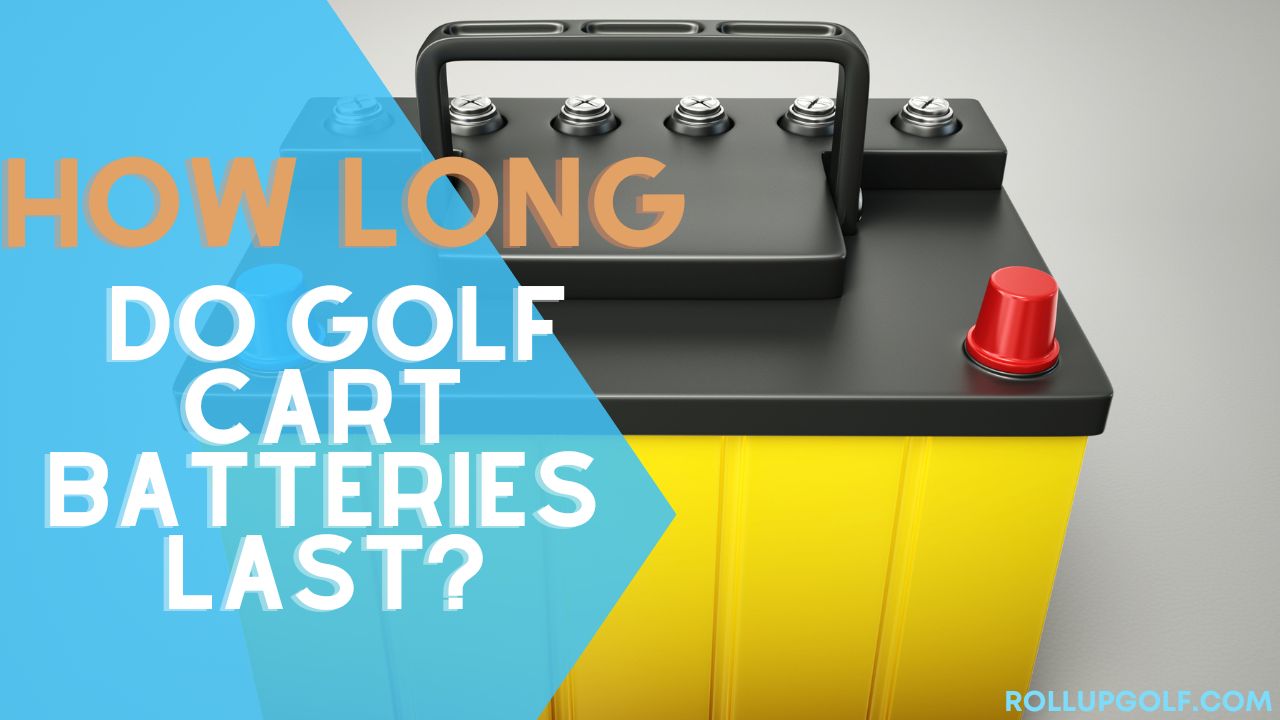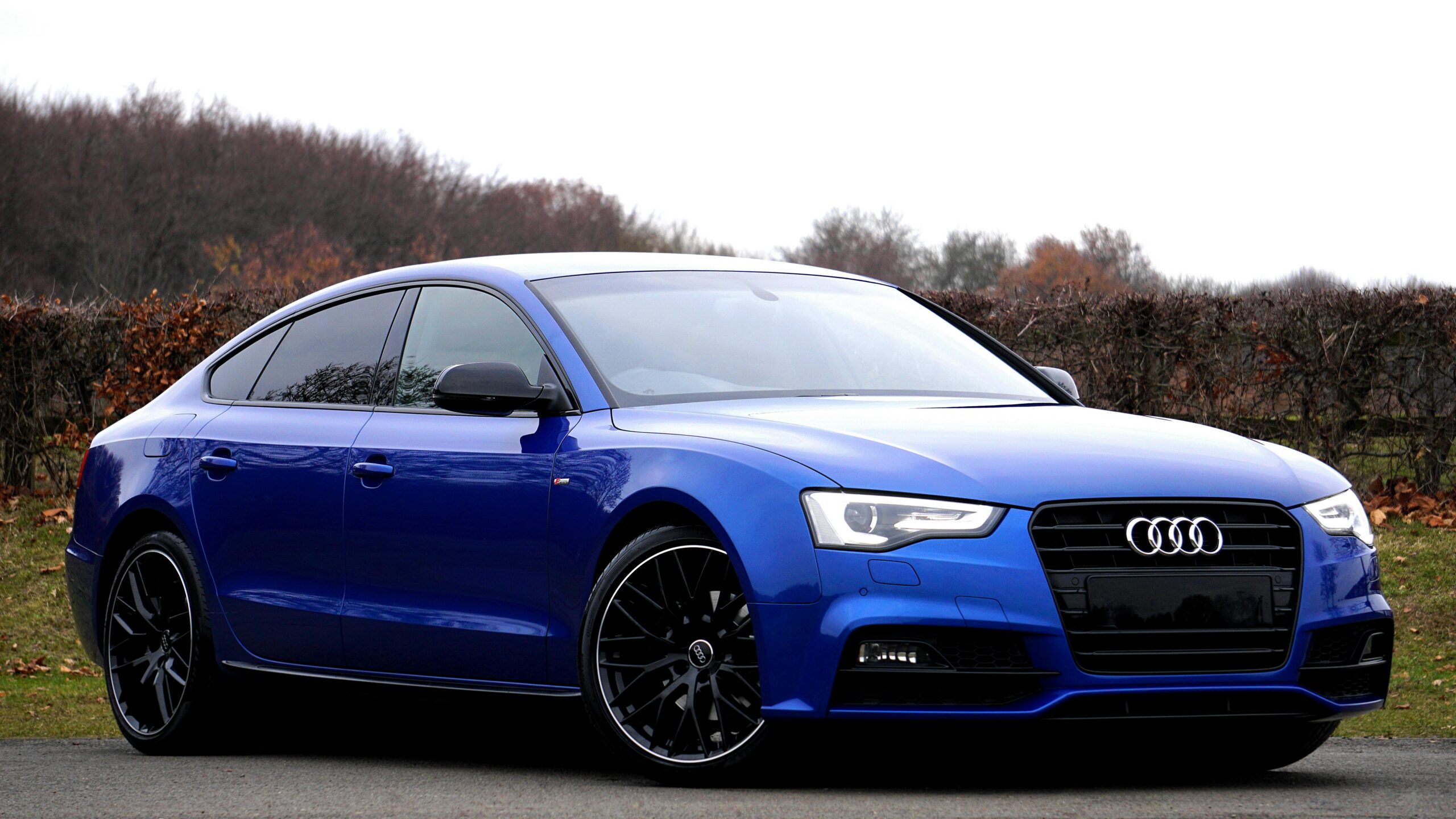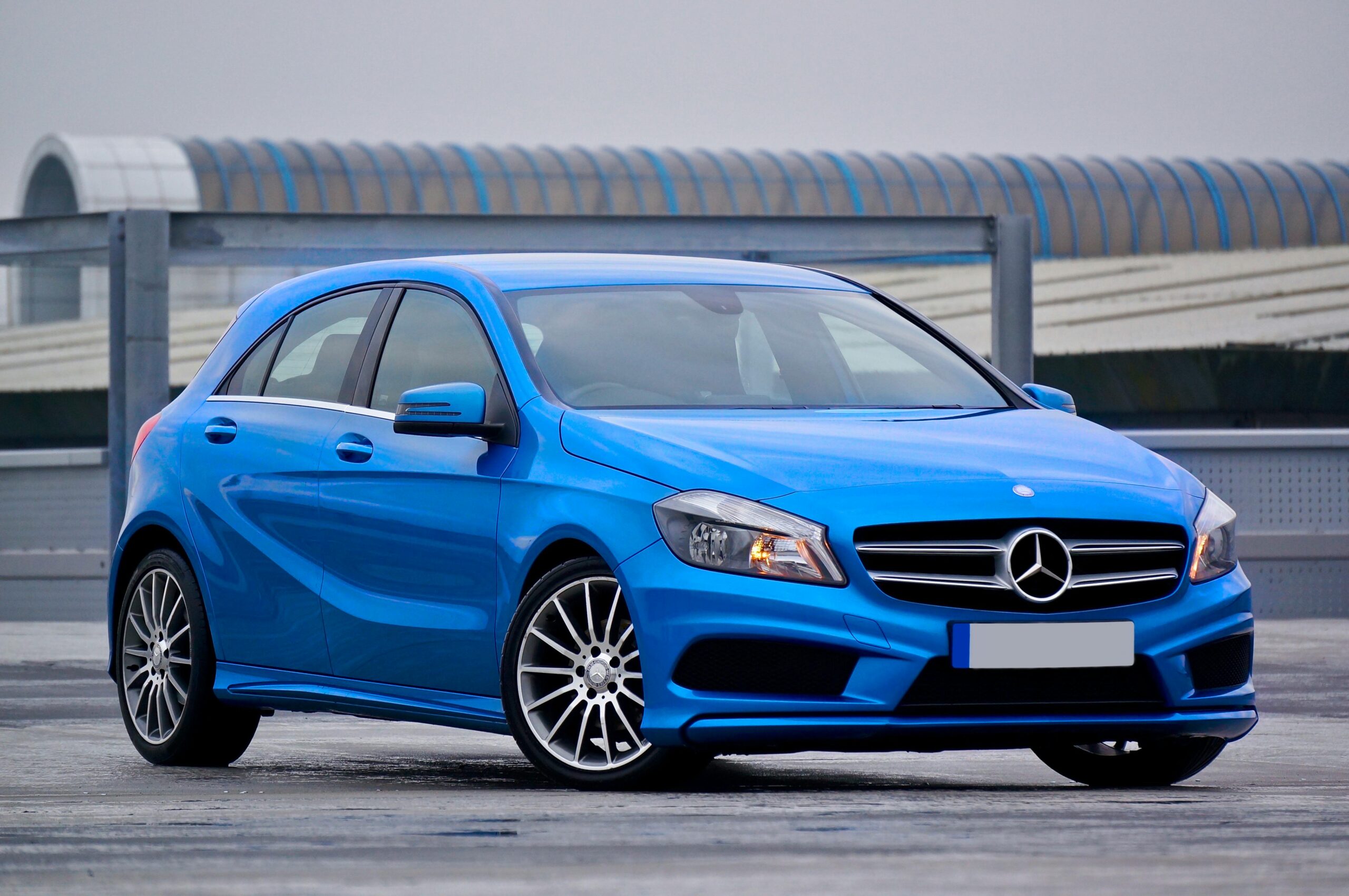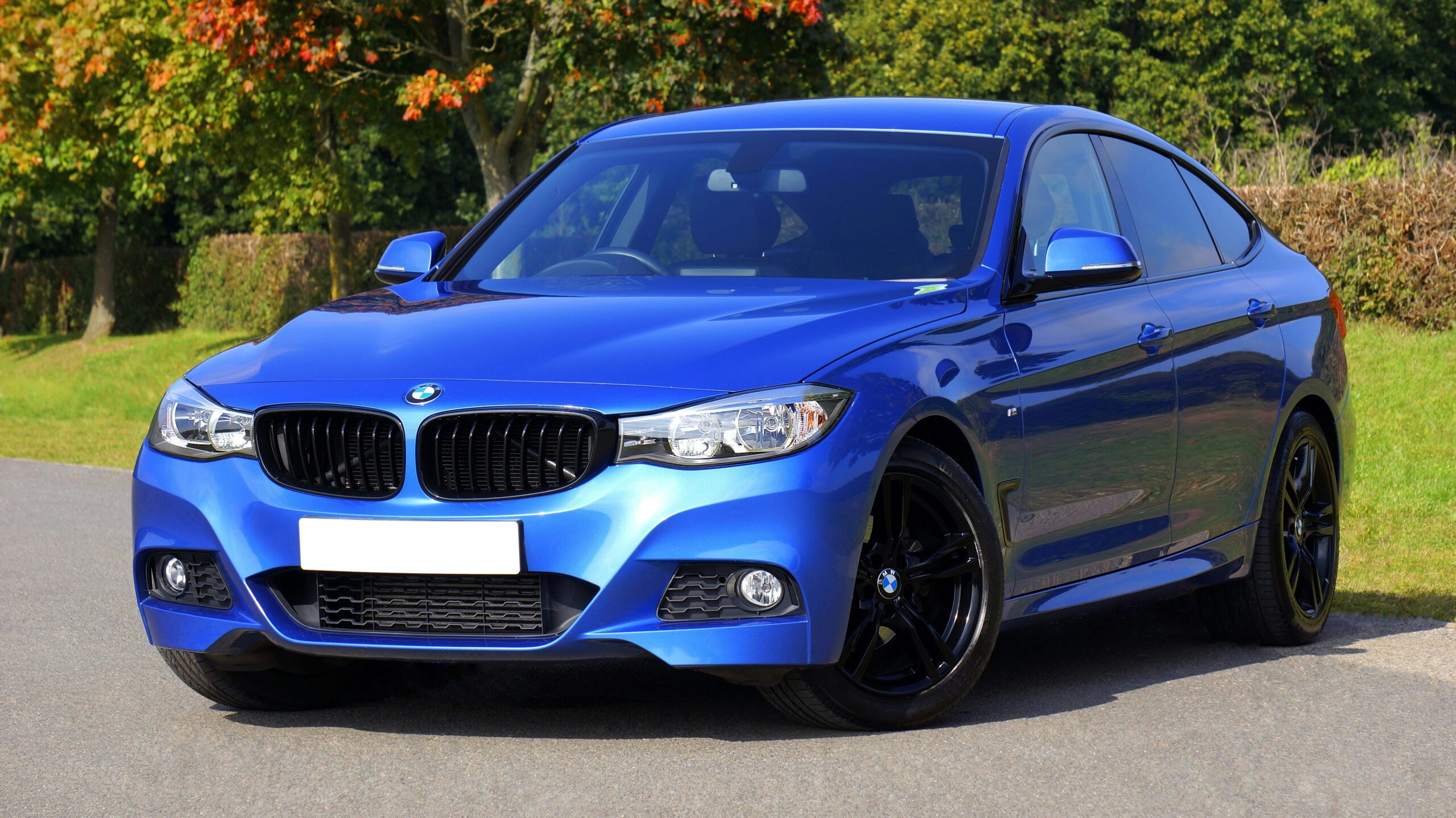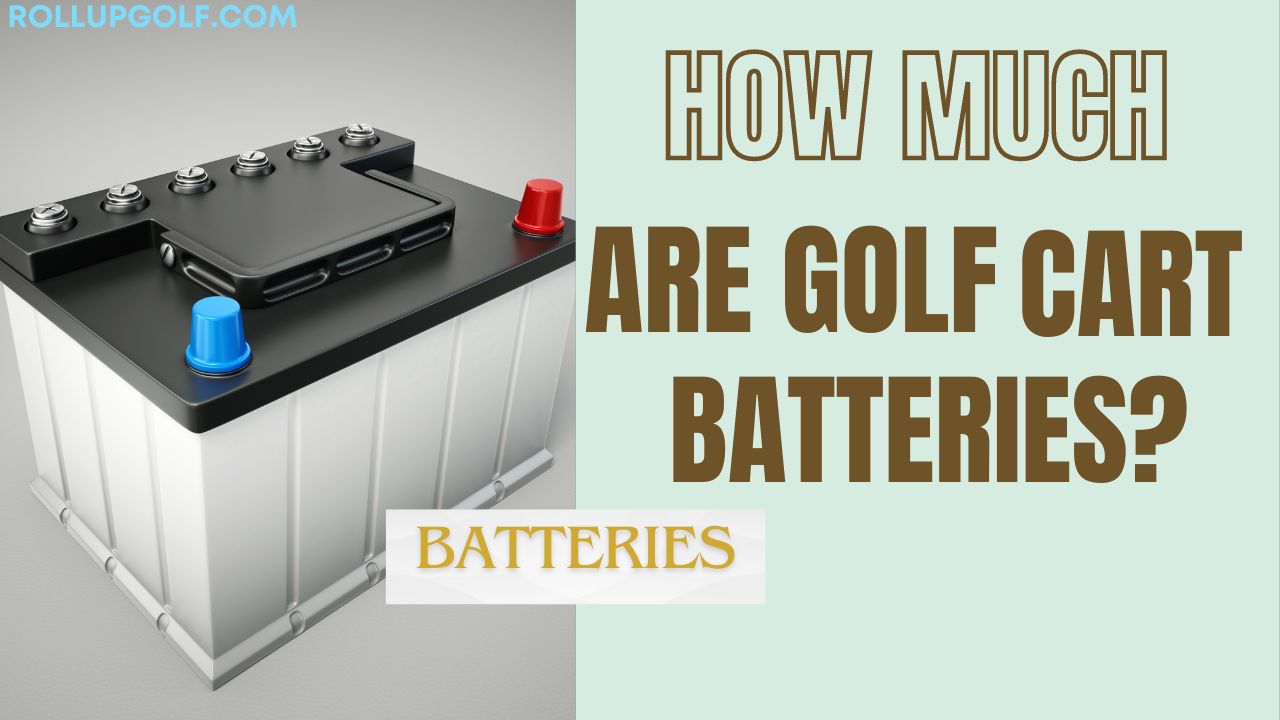
Golf carts are indispensable for traversing the sprawling greens of golf courses, navigating around neighborhoods, and even for utility purposes in various settings. However, to keep these electric-powered vehicles running smoothly, one essential component demands attention: the battery.
When it comes to the cost of golf cart batteries, several factors come into play. we’ll explore: How Much Are Golf Cart Batteries, Cheap Golf Cart Batteries, How Much is the Average golf cart battery, and How to Determine the Right Battery for Your Golf Cart.
Read also: How to Choose the Right Golf Ball?
Types of Golf Cart Batteries
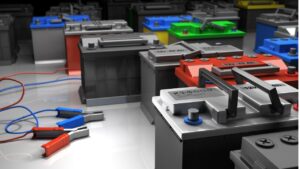
When it comes to powering golf carts, several types of batteries are available, each with its advantages and disadvantages. Understanding the characteristics of different battery types can help you make an informed decision when selecting the right battery for your golf cart.
1. Lead-acid batteries
Lead-acid batteries are the most common type of batteries used in golf carts. They consist of lead plates submerged in an electrolyte solution of sulfuric acid. These batteries are relatively inexpensive compared to other types, making them a popular choice among golf cart owners. However, lead-acid batteries require regular maintenance, including topping up electrolyte levels and periodic equalization charging to ensure optimal performance and longevity.
2. Lithium-Ion Batteries
Lithium-ion batteries have gained popularity in recent years due to their superior performance and longevity compared to lead-acid batteries. These batteries utilize lithium-ion technology to store and release energy efficiently, resulting in higher energy density and longer cycle life.
Lithium-ion batteries are also lighter and more compact than lead-acid batteries, making them an attractive option for golf cart owners looking to reduce weight and increase range. Although lithium-ion batteries tend to have a higher upfront cost, they offer significant benefits in terms of performance, reliability, and lifespan.
3. Gel Batteries
Gel batteries, also known as valve-regulated lead-acid (VRLA) batteries, are a type of sealed lead-acid battery that uses a gel electrolyte instead of a liquid electrolyte. These batteries are maintenance-free and resistant to leakage, making them an ideal choice for applications where safety and convenience are paramount.
Gel batteries are less prone to sulfation and electrolyte stratification compared to flooded lead-acid batteries, resulting in longer service life and improved performance. However, gel batteries tend to be more expensive than traditional lead-acid batteries, which may deter some golf cart owners from choosing them.
4. AGM Batteries
Absorbent Glass Mat (AGM) batteries are another type of sealed lead-acid battery that uses a fiberglass mat to absorb and immobilize the electrolyte. Like gel batteries, AGM batteries are maintenance-free and resistant to leakage, making them suitable for use in golf carts and other applications where reliability is crucial.
AGM batteries offer several advantages over flooded lead-acid batteries, including faster charging, higher discharge rates, and better resistance to vibration and shock. However, AGM batteries tend to be more expensive than flooded lead-acid batteries, which may influence the purchasing decision of some golf cart owners.
5. Flooded Batteries
Flooded batteries, also known as wet-cell batteries, are the traditional type of lead-acid battery used in golf carts. These batteries consist of lead plates submerged in a liquid electrolyte of sulfuric acid and water. While flooded batteries are inexpensive and widely available, they require regular maintenance to ensure proper performance and longevity.
This includes checking electrolyte levels, topping up distilled water as needed, and periodic equalization charging to prevent sulfation and stratification. Despite their low cost, flooded batteries may not offer the same level of reliability and convenience as sealed batteries such as gel or AGM batteries.
In summary, golf cart owners have several options when it comes to choosing a battery for their vehicle. Lead-acid batteries remain a popular choice due to their affordability, but lithium-ion, gel, and AGM batteries offer superior performance and longevity, albeit at a higher cost. Ultimately, the best type of battery for your golf cart will depend on your specific requirements, budget, and preferences.
Read also: How to Make a Gas Golf Cart Faster?
Best golf batteries 2024

Determining the “best” golf battery in 2024 depends on various factors specific to your needs and preferences. However, here are some top contenders based on different categories:
Best Overall:
- Trojan T-125 240Ah, 6V Deep Cycle Battery: This flooded lead-acid battery offers a reliable and well-balanced combination of performance, lifespan (3-5 years), and affordability, making it a popular choice for many golfers.
AGM Battery:
- Lifeline AGM Battery – GPL-4CT: This AGM battery provides superior maintenance-free operation and a longer lifespan (5-7 years) compared to flooded lead-acid batteries, making it a good choice for those who value convenience and durability.
Lithium-Ion Battery:
- ExpertPower 12V 100Ah Lithium LiFePO4 Battery: This lithium-ion battery boasts the longest lifespan (7-10+ years), lightest weight, and most consistent performance, making it a premium choice for golfers who prioritize top-of-the-line technology and long-term value.
Best Budget-Friendly Option:
- US Battery US12VHC 225Ah 6V Golf Cart Battery: This flooded lead-acid battery offers a cost-effective option for budget-conscious golfers. However, keep in mind the shorter lifespan and maintenance requirements compared to other options.
Remember, the best battery for you depends on your individual needs and priorities. Consider factors like your budget, how often you use your golf cart, the terrain you typically play on, and your desired level of maintenance before making your final decision.
How Much Are Golf Cart Batteries?
The cost of golf cart batteries can vary depending on the type of battery, the number of batteries you need, and the brand.
- Lead-acid batteries are the most common type of golf cart battery, and they typically cost between $800 and $1,500 for a set of four batteries.
- AGM batteries are a type of lead-acid battery that is sealed and maintenance-free. They are typically more expensive than lead-acid batteries, costing between $1,000 and $2,000 for a set of four batteries.
- Lithium-ion batteries are the most expensive type of golf cart battery, but they also offer the longest lifespan and the most consistent performance. They typically cost between $2,000 and $4,000 for a set of four batteries.
The lifespan of a golf cart battery can also vary depending on the type of battery, how well you maintain it, and how often you use it. Lead-acid batteries typically last for 3-5 years, while AGM batteries can last for 5-7 years. Lithium-ion batteries can last for 7-10 years or even longer.
Cheap golf cart batteries
While the term “cheap” is subjective, it’s important to understand that sacrificing quality for an upfront lower price on golf cart batteries can lead to higher costs in the long run. Here’s a breakdown of the different types considering both price and potential value:
- Flooded Lead-Acid Batteries: These are the most budget-friendly option, typically costing around $800-$1000 for a set of four. However, they require regular maintenance (adding water) and have a shorter lifespan (3-5 years) compared to other options.
- AGM Batteries: These sealed, maintenance-free batteries come at a slightly higher price point, ranging from $1000-$1500 for a set of four. They offer a longer lifespan (5-7 years) and better performance than flooded lead-acid batteries.
It’s important to remember that while flooded lead-acid batteries seem like the cheapest option initially, their shorter lifespan and maintenance requirements can lead to more frequent replacements, potentially costing you more in the long run.
Finding a good balance between price and value is crucial. Consider factors like how often you use your golf cart, the terrain you typically drive on, and your budget when making your decision.
Read also: What is a Golf Hat Called?
How much is the average golf cart battery?
The average cost of a golf cart battery is approximately $1716.67. However, the actual cost can vary depending on the specific battery type, size, brand, and retailer.
Here’s a table summarizing the average costs of different golf cart battery types:
| Battery Type | Average Cost |
|---|---|
| Lead-Acid | $900 |
| AGM | $1250 |
| Lithium-Ion | $3000 |
As you can see, lithium-ion batteries are the most expensive option, but they also offer the longest lifespan and best performance. Lead-acid batteries are the most affordable option, but they have a shorter lifespan and require more maintenance. AGM batteries offer a good balance between cost, performance, and lifespan.
Cost Factors of Golf Cart Batteries
The cost of golf cart batteries is influenced by several factors. While the initial purchase price is a significant consideration, one must also account for long-term expenses such as maintenance and replacement costs. Opting for cheaper batteries might save money upfront but could lead to higher expenses in the long run.
Factors Affecting Golf Cart Battery Prices
Several factors contribute to the pricing of golf cart batteries. Brand reputation plays a significant role, with well-known manufacturers often commanding higher prices for their products. Battery capacity, indicated by voltage and amp-hour ratings, also influences prices, with higher-capacity batteries typically costing more. Additionally, warranty coverage can affect prices, as batteries with longer warranties often come with a higher price tag.
Benefits of Investing in Quality Golf Cart Batteries
Investing in quality golf cart batteries can have numerous advantages, ranging from improved performance and reliability to long-term cost savings. Here are some key benefits of opting for high-quality batteries for your golf cart:
1. Enhanced Performance and Reliability
Quality golf cart batteries are engineered to deliver consistent and reliable performance, ensuring smooth operation of your vehicle on the golf course or other terrain.
These batteries provide ample power to drive the cart efficiently, even under challenging conditions such as steep inclines or rough terrain. With a reliable battery powering your golf cart, you can enjoy uninterrupted rounds of golf or leisurely rides without worrying about sudden power failures or performance issues.
2. Longevity and Durability
High-quality golf cart batteries are built to last, with robust construction and advanced technology that ensure long-term durability and reliability.
These batteries undergo rigorous testing to withstand the rigors of frequent use and harsh environmental conditions, ensuring that they maintain their performance and lifespan over time.
Investing in a quality battery can prolong the life of your golf cart, reducing the need for frequent replacements and saving you money in the long run.
3. Cost Savings in the Long Run
While quality golf cart batteries may come with a higher upfront cost compared to lower-quality alternatives, they offer significant cost savings over their lifespan.
By investing in a durable and reliable battery, you can avoid the expense and inconvenience of frequent replacements, maintenance, and repairs associated with cheaper batteries. Additionally, high-quality batteries typically offer better energy efficiency, resulting in lower energy consumption and reduced charging costs over time.
4. Improved Safety and Peace of Mind
Quality golf cart batteries undergo stringent quality control measures to ensure they meet the highest safety standards. These batteries are designed to operate safely and reliably, minimizing the risk of accidents, malfunctions, or damage to the vehicle or surrounding environment.
With a quality battery powering your golf cart, you can enjoy peace of mind knowing that your vehicle is equipped with a dependable and safe power source that won’t let you down when you need it most.
5. Better Resale Value
Investing in a quality golf cart battery can also enhance the resale value of your vehicle. Potential buyers are more likely to be attracted to a golf cart equipped with a high-quality battery that offers superior performance, reliability, and longevity. By maintaining your vehicle with a top-of-the-line battery, you can maximize its resale value and recoup a larger portion of your initial investment when it comes time to upgrade or sell your golf cart.
How to Determine the Right Battery for Your Golf Cart?
Choosing the right battery for your golf cart goes beyond just finding the cheapest option. Here’s a breakdown of the key factors to consider:
-
Know Your Cart’s Requirements:
- Voltage (V): This is crucial for compatibility. Most electric golf carts use either 36V or 48V systems. Check your owner’s manual or consult the manufacturer’s website for your specific model. You can also sometimes determine the voltage by counting the number of cells (or caps) on one battery (usually 3, 4, or 6) and multiplying that by 2.
-
Battery Type:
- Flooded Lead-Acid: Most affordable, require regular maintenance (adding water), have shorter lifespan (3-5 years).
- AGM (Absorbent Glass Mat): Sealed, maintenance-free, longer lifespan (5-7 years), better performance than flooded lead-acid, slightly more expensive.
- Lithium-Ion: Most expensive, longest lifespan (7-10+ years), best performance, lightweight.
-
Battery Capacity (Amp-hours – Ah):
- This indicates how long the battery can deliver power. A higher Ah rating translates to a longer runtime on a single charge. Consider factors like:
- How often you use your cart
- Typical distance of your rides
- Number of passengers you carry
- Terrain (hilly courses require more power)
-
Brand and Warranty:
- Choose reputable brands with good warranties. While a brand name battery might cost slightly more upfront, the warranty can provide peace of mind and potentially save you money in the long run if there are any issues.
Here’s a table summarizing the factors to consider:
| Factor | Description |
|---|---|
| Voltage (V) | Needs to match your cart’s electrical system (usually 36V or 48V). |
| Battery Type | Consider maintenance needs, lifespan, and budget (Flooded Lead-Acid < AGM < Lithium-Ion). |
| Battery Capacity (Ah) | Higher Ah provides longer runtime; consider usage patterns and terrain. |
| Brand and Warranty | Opt for reputable brands with good warranties for peace of mind. |
By considering these factors, you can make an informed decision and choose the right battery for optimal performance, longevity, and value for your golf cart.
Tips for Maintaining Golf Cart Batteries
Proper maintenance is essential for prolonging the lifespan of golf cart batteries and ensuring optimal performance. Here are some tips for maintaining your golf cart batteries:
1. Establish a Regular Charging Schedule
Maintaining a consistent charging schedule is crucial for preserving the health and longevity of your golf cart batteries. Ideally, you should recharge your batteries after each use to prevent them from becoming deeply discharged, which can lead to irreversible damage.
Avoid letting the batteries sit in a discharged state for extended periods, as this can cause sulfation and reduce their overall lifespan.
2. Clean and Inspect Batteries Regularly
Regular cleaning and inspection of your golf cart batteries can help prevent corrosion and identify any potential issues before they escalate. Use a mixture of baking soda and water to clean the battery terminals and cables, ensuring that they are free from dirt, grease, and corrosion. Inspect the batteries for any signs of damage, such as cracks, leaks, or bulges, and address any issues promptly to prevent further damage or safety hazards.
3. Avoid Over-Discharge
Avoiding over-discharge is essential for prolonging the lifespan of your golf cart batteries. Deep discharges can cause irreversible damage to the batteries and significantly reduce their capacity and performance over time. To prevent over-discharge, monitor the voltage of your batteries regularly and recharge them before they reach a critically low level. Invest in a voltage meter or battery monitoring system to accurately track the state of charge and avoid over-discharge.
4. Use Distilled Water for Maintenance
If you have flooded lead-acid batteries, it’s essential to check and maintain the electrolyte levels regularly. Use distilled water to top up the electrolyte levels as needed, ensuring that the plates remain submerged in the electrolyte solution. Avoid using tap water or other types of water, as they may contain impurities that can affect battery performance and lifespan.
5. Store Batteries Properly During Off-Season
If you plan to store your golf cart during the off-season or extended periods of inactivity, it’s essential to store the batteries properly to prevent damage and degradation.
Fully charge the batteries before storing them and disconnect them from the golf cart to prevent parasitic loads and self-discharge. Store the batteries in a cool, dry place away from direct sunlight and extreme temperatures, and periodically check the voltage to ensure they remain in good condition.
6. Invest in a Quality Charger
Investing in a quality battery charger is essential for maintaining the health and performance of your golf cart batteries. Choose a charger that is compatible with your battery type and capacity and follow the manufacturer’s recommendations for charging procedures.
Avoid using cheap or incompatible chargers, as they may not provide the necessary voltage and current regulation, leading to overcharging or undercharging, which can damage the batteries.
7. Avoid Excessive Heat and Cold
Extreme temperatures can adversely affect the performance and lifespan of golf cart batteries. Avoid exposing the batteries to excessive heat or cold, as this can cause thermal runaway, reduced capacity, and accelerated degradation. If possible, store the golf cart in a climate-controlled environment or use battery insulation or heating devices to maintain optimal operating temperatures.
By following these tips for maintaining your golf cart batteries, you can ensure optimal performance, longevity, and reliability, ultimately maximizing your enjoyment and investment in your golf cart. Regular maintenance and proper care are essential for preserving the health and performance of your batteries and extending their lifespan for years of trouble-free operation.
Common Misconceptions About Golf Cart Batteries
There are several misconceptions surrounding golf cart batteries that can influence purchasing decisions. Contrary to popular belief, not all expensive batteries are necessarily better, as factors such as brand reputation and warranty coverage also play crucial roles.
Additionally, leaving batteries on charge all the time can decrease their lifespan rather than improve performance, and new batteries may require a breaking-in period to reach their full potential.
Environmental Impact of Golf Cart Batteries
Considering the environmental impact of golf cart batteries is essential, especially concerning disposal and recycling. Proper disposal methods, such as recycling or returning batteries to authorized facilities, help minimize environmental pollution and conserve valuable resources. Furthermore, advancements in battery technology, such as the use of lithium-ion batteries, offer environmental benefits through reduced energy consumption and greenhouse gas emissions.
Conclusion
In conclusion, the cost of golf cart batteries varies depending on several factors, including type, brand, and capacity. While lead-acid batteries tend to be more affordable initially, lithium-ion batteries offer superior performance and longevity, albeit at a higher cost. When choosing a battery for your golf cart, it’s essential to consider factors such as usage needs, budget constraints, and long-term value to make an informed decision that ensures optimal performance and reliability.
FAQs
- Are lithium-ion batteries worth the higher upfront cost?Lithium-ion batteries offer superior performance and longevity compared to lead-acid batteries, making them worth the higher upfront cost for many users.
- How often should I replace my golf cart batteries?The lifespan of golf cart batteries varies depending on factors such as usage, maintenance, and battery type, but they typically last between three to five years.
- Can I use regular car batteries in my golf cart?While it may be possible to use regular car batteries in a golf cart, it’s not recommended as they may not provide the necessary power or longevity required for optimal performance.
- What is the typical lifespan of a golf cart battery?The typical lifespan of a golf cart battery ranges from three to five years, depending on factors such as usage, maintenance, and battery type.
- Is it safe to charge golf cart batteries overnight?While modern chargers are equipped with safety features to prevent overcharging, it’s generally not recommended to leave golf cart batteries charging overnight as a precautionary measure against potential hazards.

